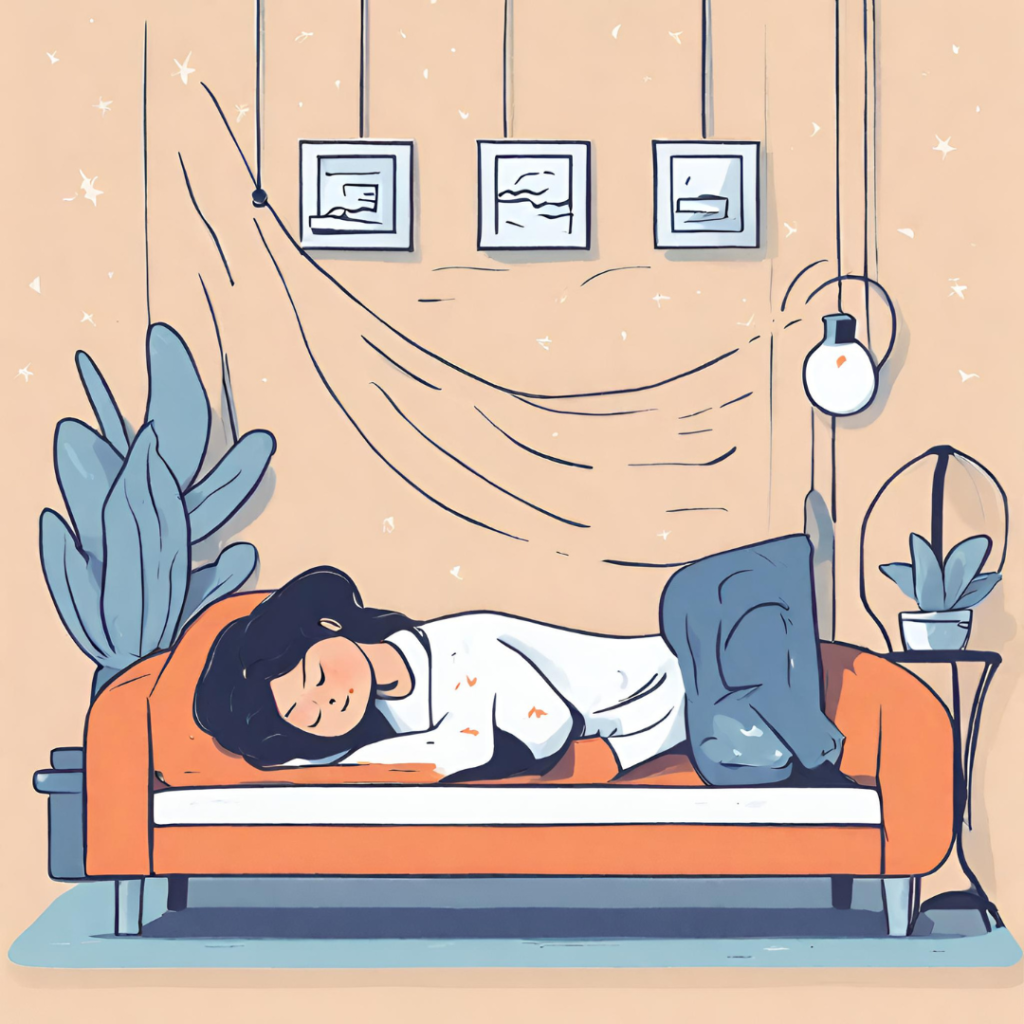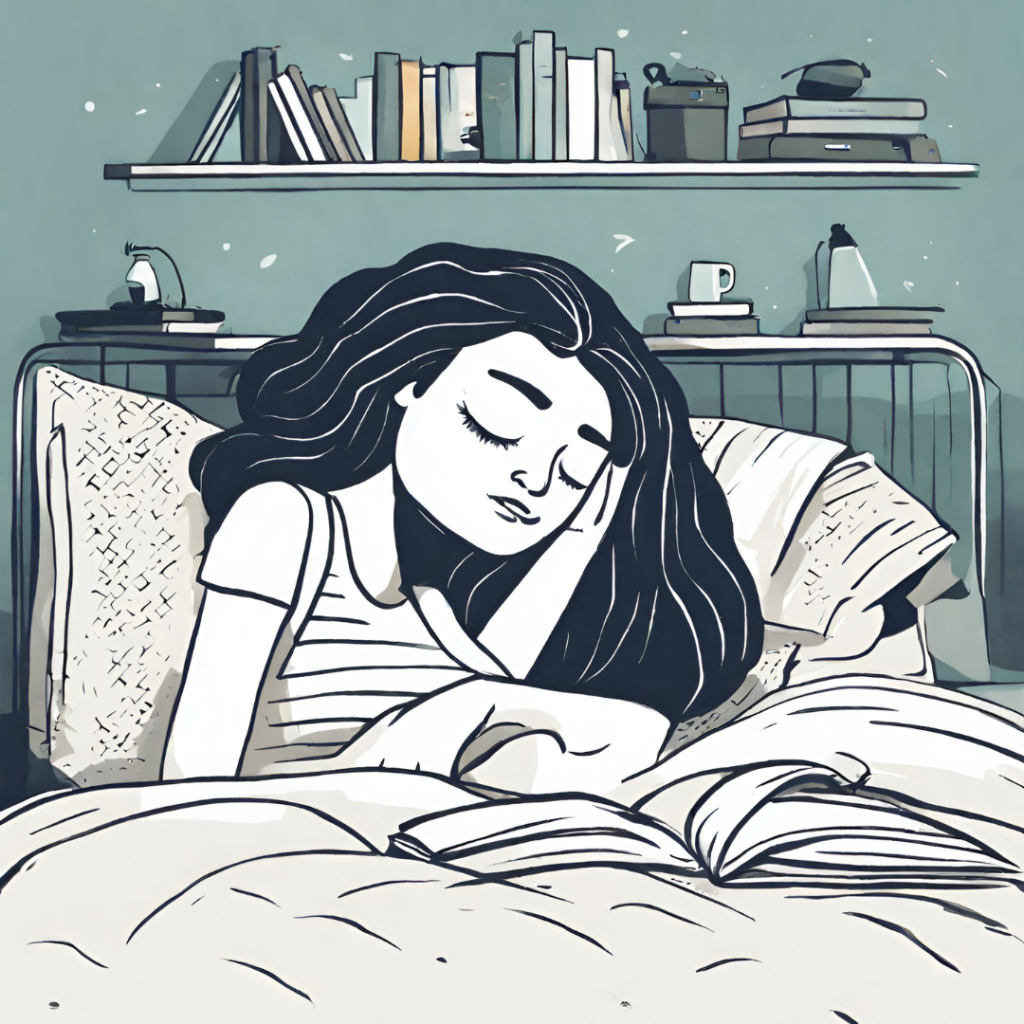In a world that’s always on, stress has become a constant companion. Anxiety, a symptom of stress, can have significant effects on our health and well-being. Amidst various coping mechanisms, one simple, natural, and often overlooked method stands out: napping. This article delves into how incorporating naps into your routine can be a game-changer for managing stress and reducing anxiety, highlighting the napping benefits for anxiety reduction.
Understanding Stress and Anxiety
Stress is your body’s response to any demand or threat, real or imagined. When you feel threatened, your nervous system responds by releasing a flood of stress hormones, including adrenaline and cortisol. This “fight or flight” response is meant to protect you, but when it’s constantly triggered by the worries of modern life, it can wear your body down and lead to anxiety.
Anxiety is more than just feeling stressed or worried. It’s when these feelings don’t subside and are ongoing without any particular reason or cause. It’s a serious condition that makes it hard to cope with daily life. Recognizing the role of napping as a natural intervention offers a valuable approach to alleviating these symptoms.
The Power of Napping
Enter napping, a practice as old as time, yet often disregarded in the modern hustle culture. A short nap, typically lasting between 10 to 30 minutes, can do wonders for your mental and emotional state. Here’s how napping contributes significantly to stress and anxiety management:
Reduces Stress Hormones
Napping has been shown to reduce cortisol levels, the body’s primary stress hormone. Even a brief rest can help reset your hormonal balance, pulling you out of the stress response and into a state of relaxation, a key factor in napping’s benefits for anxiety reduction.
Enhances Emotional Regulation
Napping can improve your ability to regulate emotions. A study published in the ‘Journal of Clinical Endocrinology & Metabolism’ found that naps reduce the reactivity of the amygdala, the brain’s emotional center, to negative stimuli. This can help keep anxiety at bay by preventing overreaction to stressors, underlining the importance of napping in emotional well-being.

Improves Cognitive Function
Anxiety can cloud thinking, but a quick nap can clear the fog. Napping has been shown to improve cognitive functions like memory, attention, and decision-making, all of which are compromised when you’re anxious. This cognitive enhancement is a vital aspect of the benefits of napping in managing anxiety.
Boosts Physical Health
Chronic stress and anxiety take a toll on your physical health. By improving sleep quality and providing the body with extra downtime, napping can help mitigate these effects, leading to better overall health and resilience against stress. This physical health improvement is an integral part of the napping benefits for anxiety reduction.
Promotes Relaxation
Napping is a form of restorative yoga for the mind. It provides a peaceful break from the day’s stresses, allowing for deep relaxation that can help alleviate anxiety symptoms. This relaxation effect is a crucial component of the therapeutic benefits of napping for anxiety management.
Napping Best Practices for Maximizing Anxiety Relief
To reap the full benefits of napping for stress relief, consider the following tips:
Timing is Everything
The best time to nap is typically early to mid-afternoon when your energy starts to dip due to natural circadian rhythms. Avoid napping too late in the day as it can interfere with nighttime sleep.
Keep it Short
Aim for a 10-30 minute nap. This is long enough to provide restorative benefits without causing sleep inertia, the grogginess that can follow longer naps, thus optimizing the napping benefits for anxiety reduction.
Create a Restful Environment
Find a quiet, dark space where you can relax without interruptions. Consider using an eye mask or earplugs, if needed, thus optimizing the napping benefits for anxiety reduction.
Consistency is Key
Try to nap at the same time each day to regulate your body’s internal clock, making it easier to fall asleep and wake up refreshed. This consistency reinforces the positive impact of napping on mental health.
Pair with Relaxation Techniques
Combine napping with other stress-reducing practices like deep breathing, meditation, or light stretching for enhanced benefits, further boosting the napping benefits for anxiety management.

Understanding the Limitations in the Context of Anxiety Management
While napping can be a fantastic tool for stress relief, it’s not a cure-all. Naps should complement, not replace, a healthy lifestyle that includes regular exercise, a balanced diet, and good nighttime sleep habits. Additionally, napping isn’t suitable for everyone. For some, particularly those with insomnia or sleep disorders, napping can worsen nighttime sleep problems – highlighting the need to tailor napping practices for individual anxiety and stress needs.
The Science Behind Napping and Stress Relief
Several studies have underscored the relationship between napping and reduced stress. One notable study conducted by the ‘Sorbonne University’ in Paris found that a short nap was enough to significantly reduce stress and bolster the immune system in sleep-deprived individuals, reinforcing the scientific backing for napping as a strategy for anxiety reduction.
Conclusion: The Benefits of Napping for Reducing Anxiety
In our fast-paced world, napping emerges as a simple yet potent antidote to stress and anxiety. By incorporating mindful napping into your routine, you harness a natural, accessible means of restoring balance to your mind and body. As we navigate the complexities of modern life, the timeless wisdom of napping reminds us that sometimes, the best thing we can do for our health is to simply close our eyes and rest.
Remember, while napping is a helpful tool for stress relief, it’s important to approach anxiety holistically. If anxiety is significantly impacting your life, seek professional help. Napping can be part of a broader strategy to manage anxiety, alongside therapy, medication, and lifestyle changes, highlighting its role in the holistic approach to anxiety reduction.


